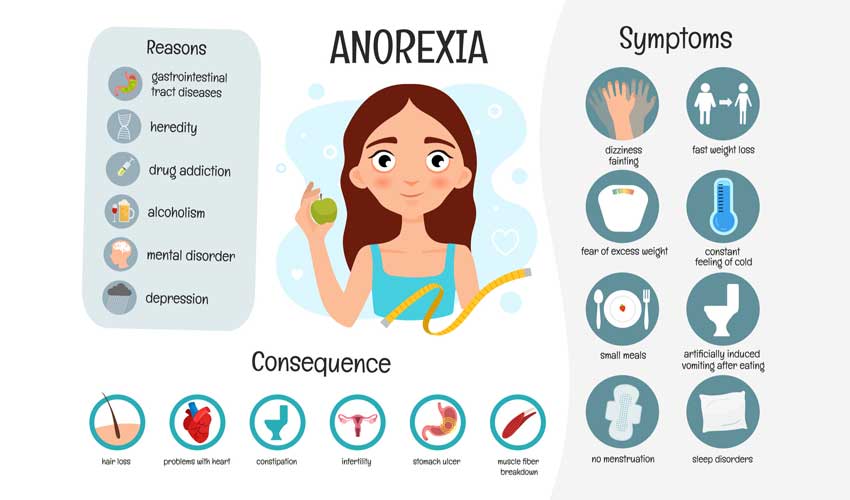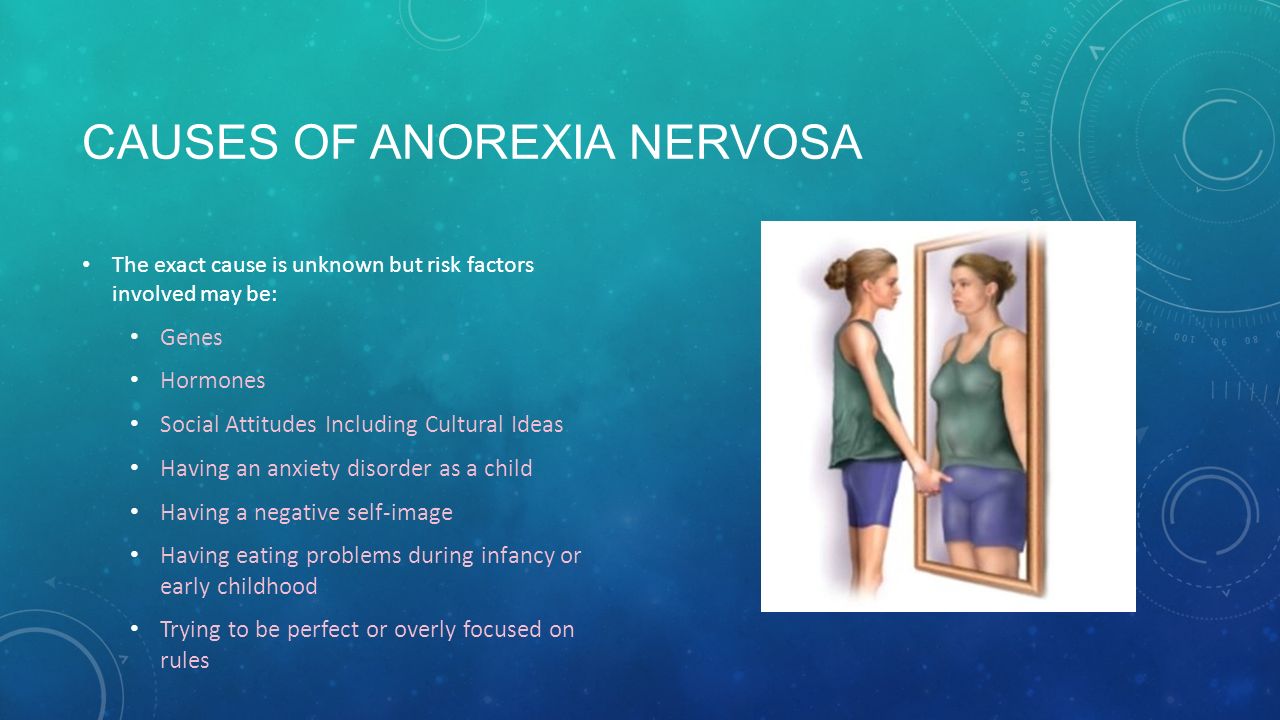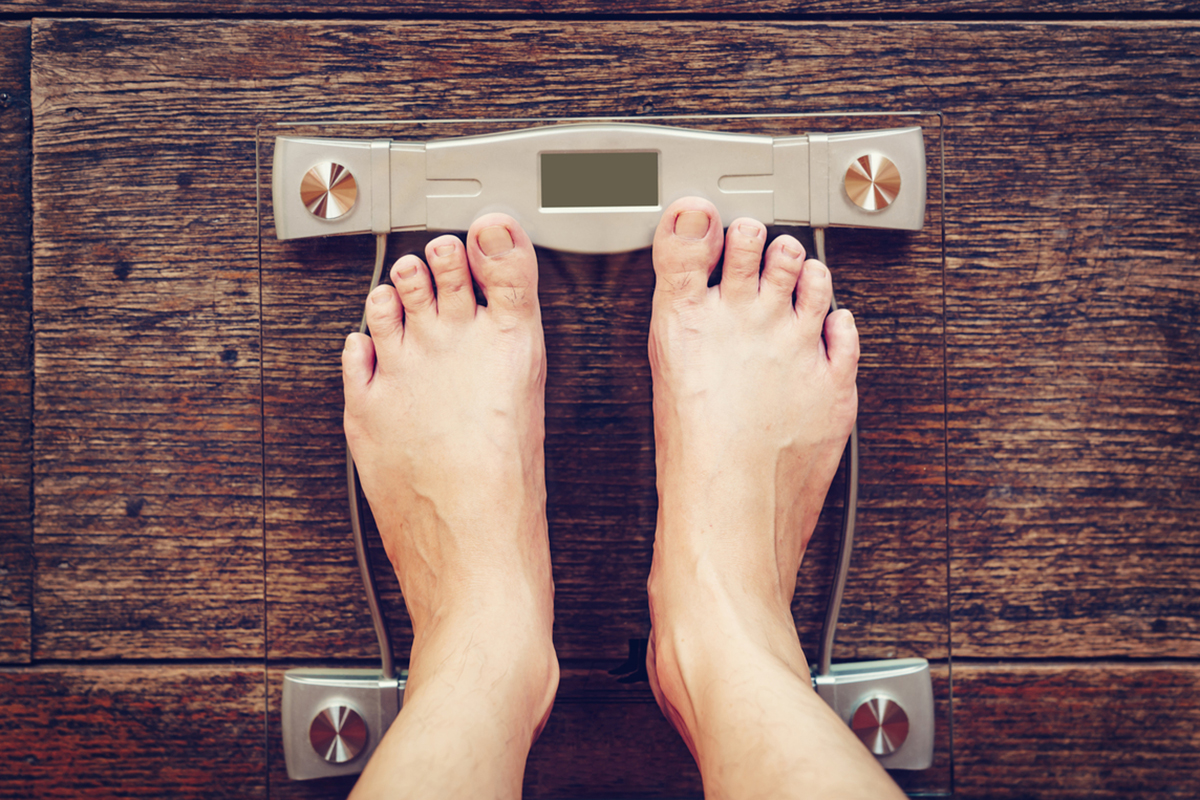Anorexia Nervosa- Leading disease in young girls...
Overview

It is called Anorexia. It is an eating disorder which is characterised by an abnormally low body weight, an intense fear of gaining weight. People who are suffering from this disease is in believe that their weight is increasing day by day . But their was no seen like this, it was just their fear.In order to give themselves a best figure they dropped their weight to a dangerous level.They are psychologically immature, unable to cop with the challenges of puberty and their emerging sexuality.This results in loss of feminine characteristics.Anorexia nervosa is common in human females between the age of 12 and 21.
Symptoms

Its symptoms are related to starvation. it includes emotional and behavioral issues that involves unrealistic perception of body weight and also a fear of gaining body weight. People with anorexia sometimes disguise their thinness, eating habits or physical problems.
Physical symptoms
it includes: - Extreme weight loss
- Thin appearance or looks healthy
- Abnormal blood counts
- Fatigue
- Insomnia
- Dizziness or fainting
- Bluish discoloration of the fingers
- Hairs that thin, breaks or fall out
- Soft hairs that entirely cover the whole body
- Absence of menstruation
- Constipation and abdominal pain
- Skin become dry or yellowish
- Intolerance of cold
- Blood pressure becomes low
- Dehydration
- Arms and legs become swollen
- Irregular heart rhythms
Emotional and behavioral symptoms
Behavioral symptoms include attempts to lose weight
- They take food in the form of dieting
- People do more exercise
Emotional symptoms includes:
- People frequently skip meals or deny to eat
- People make different excuses for not eating
- People eat only that food that have low fat and calories
- People do not want to eat in public
- Lying about their food quantity
- Fear of gaining weight
- Flat mood
- Insomnia
- Irritability
- Osteoporosis
- Memory loss
Causes

The exact causes of Anorexia nervosa is not known. The persons suffering from this disease have a negative image. They always focus on the Being perfect.
How is Anorexia diagnosed?
If symptoms are present, the doctor will begin an evaluation by performing a complete medical history and physical exam. There are no lab tests to diagnose this disease. The doctors use various diagnostic tests such as, blood tests, as the cause of weight loss as well as to evaluate the effects of the weight loss on the organism's body.If no physical illness is found then the person referred to psychologist, health care professions who are specially trained to diagnose and treat mental illness.
What is the treatment For Anorexia?
There is no specific treatment about this disease. This treatment tries to address three main areas: - Restoring the person to a healthy weight.
- Treating the psychological disorders related to illness.
- Reducing or eliminating behaviours or thoughts that originally led to disordered eating.
Psychotherapy
For the individuals it may seem that to control their their fear and to resist their change. Some studies shows that family based therapy is superior to individual therapy. Due to the nature of condition , treatment of people with AN can be difficult because they are afraid of gaining weight.
Diet

It is the most important factor to work with Anorexia nervosa. Food variety is important. That meal should be used that involve higher energy density. people must consume these calories starting slowly and increased at a certain point.
Medication

There is no specific medication, but nutritional supplements are needed, and the doctors suggested drugs to control anxiety and depression. Selective Serotonin Reuptake inhibitors (SSRIs) are widely used as antidepressants, but doctors suggest people that they only take them when their body weight is at least 95% of normal for their height and age.
Risk Factors
It is more common in girls and women. However, boys and men have increasingly developed eating disorders, which is related to growing social pressures.
Anorexia is also more common among teanagers. people of any age can develop this eating disorder, although it is rare over 40. Teens may be more at risk because of all the changes in their bodies go through puberty.
Complications

- Anemia
- Heart problems
- Bone loss
- Loss of muscle
- In females, Absence of a period
- Kidney problems
Written by: Hadia khalid
Your precious comments are appreciated here










10 Comments
Good work keep it up ����
ReplyDeleteIt is quite interesting and informative article.
ReplyDeletevery informative
ReplyDeleteVery good and informative 👌
ReplyDeletenice article ..keep it up...
ReplyDeletenice article ..keep it up...
ReplyDeletenice article ..keep it up...
ReplyDeletealaww...
ReplyDeletealaww...
ReplyDeleteGood
ReplyDeletecomment me if you want to learn more about it